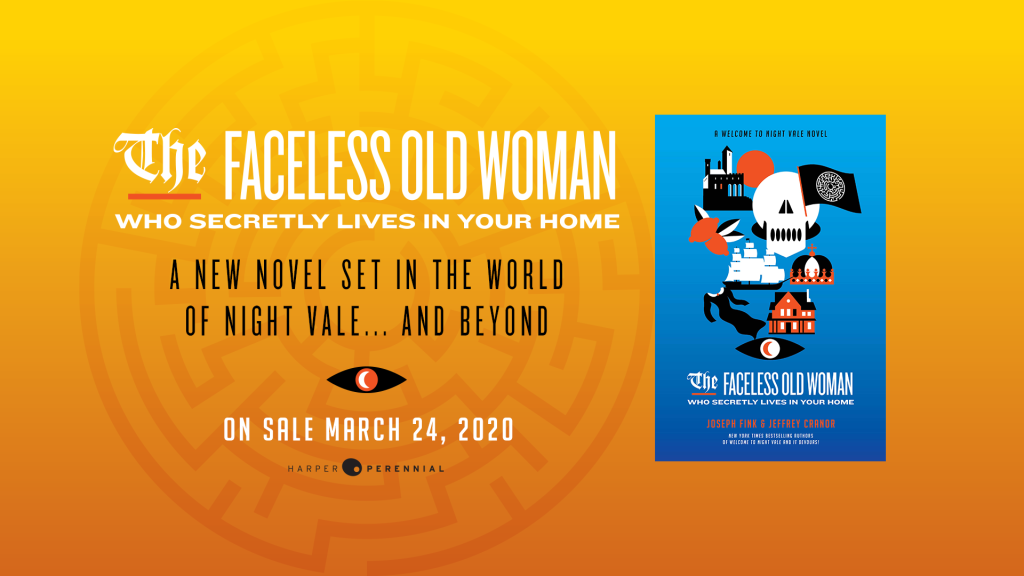There is a debate in the world of podcasts, a debate that comes up every few months in certain spheres of podcasting, drawing vitriol from every angle of the conversation: What, as an industry, do we call non-non-fiction podcasts?
Every time this debate comes up, it is treated as massively important to how we define ourselves as a medium. And every time this debate comes up, I am reminded of how little I care. It is a debate that is always heated. It is a debate in which both sides moralize their platform, seeing different stances as an attack on creators, on the medium, and on non-non-fiction overall.
And every time this debate comes up, I find myself growing ever more bored and exhausted. So, with that, let us hopefully put this to rest forevermore.
Why does any of this matter?
While visibility and appreciation of non-non-fiction podcasting is increasing rapidly–with Apple Podcasts’s new categories sure to help discoverability even more–a lack of unified industry jargon works actively against that visibility. As a journalist, this may be shocking, but I need to use words that are understood by everyone to explain things. If much of the discussion blames the press for the othering of non-non-fiction, one can only assume the press could reverse that othering as well. In order for the press to do that, journalists need to use . . . words.
And journalists cannot use words that only benefit those who already listen to non-non-fiction podcasts. Again, this may be a shock, but if the press needs to reel in new listeners, it needs to use words that can be understood by new listeners.
In her piece “Towards a Poetics of Audio: The Importance of Criticism,” Sarah Montague of The Sarah Awards writes:
“[The podcast community is] missing two important components of a vital culture: a critical language, and with it, a critical practice. The language should be expressly designed to describe our forms, tropes, and themes, but with reference to the larger culture and world of ideas. And the practice should be constant, robust, and open, with critical tools wielded to help us better understand our work, and ourselves, and to help our public to better understand us as artists.”
There is a reason established mediums like literature, film, and TV have a standardized jargon–think “biopic” for a film that acts as a biography. This jargon benefits not just those within a medium, but also those who want to consume more of that medium. I would love to take this moment to explain how jargon, when constructed well–that is, when immediately understandable, concise, and untethered to overly scholastic allusions–creates a union in a community, a shared language with which we may understand each other more precisely, versus enabling gatekeepers to alienate people from the community.
But I am very tired by all of this. And I am not going to become less tired by all of this as I explain, because I must, the timeline of this tiresome debate.
An abridged history of non-non-fiction podcast terminology
Growing from the roots of “radio drama”
The term “audio drama” comes from “radio drama” in the history of classic radio serials. It was an easy transition: because podcasts aren’t necessarily on the radio, “audio” was the next best step, especially given much phonemic overlap “radio” and “audio” have. “Drama,” its proponents argue/posit, works perfectly well as a term meaning “a work of fiction performed” as opposed to being read aloud.
This also tracks with a great deal of non-non-fiction podcasts all the way through just about the most modern era of the medium, with the exception of some very early adopters, like Escape Pod, that eschewed a specific term entirely. Many non-non-fiction podcasts use the traditional framing device of positioning the story—that is, the podcast you are hearing—as a real radio show in a fictional world, a la Welcome to Night Vale. Using “audio drama” is arguably not only descriptive of how the medium works, but also referential of the medium’s roots in classic radio drama–or, as it’s so often called, “old-timey radio drama.”
“Audio drama” becomes the major term used by those within the non-non-fiction podcast creator and fan community. It doesn’t become moralized, however, until the term “fiction podcast” starts being used in podcast reporting.
The case against “fiction podcasts”
Podcast reporting is, for many years, extremely rare. As 2019’s Infinite Dial data, only 70% of people surveyed know what podcasts are, and only 50% surveyed actually listened. Podcasts are only reported on in sources like The AV Club’s “Podmass” (which, for disclosure, I now contribute to), Nick Quah’s reporting for Vulture, and occasionally a writeup on podcasting overall in Wired or another tech-forward publication.
Because there is little reporting in the field, and because the tastes of those reporting on podcasts can only encompass so much, there is very little reporting on non-non-fiction podcasts. The term that is used when non-non-fiction podcasts are discussed by reporters (usually in terms of very popular non-non-fiction such as Welcome to Night Vale, Limetown, or Homecoming) is “fiction podcast.”
The discussion that emerges–and that, to be clear, I once agreed with–is that the use of “fiction podcast” versus the community-approved term “audio drama” is an act of marginalization, if not near violence, against non-non-fiction, and this is where the moralization starts to emerge. The concept asserts that saying “fiction podcast” for non-non-fiction while calling nonfiction podcasts simply “podcasts” shows that non-non-fiction is an other in the medium. This is intertwined with the discussion that a good deal of independent audio drama is made by marginalized creators, so othering their work is not exactly a good look.
Using the term “audio drama” and rallying against “fiction podcast” becomes a stance with perceived ethical weight from those within the non-non-fiction podcast community.
The emergence of “audio fiction”
Sometime in 2018, the term “audio fiction” emerges as a slightly clearer version of “audio drama,” as a way to appease those both within and outside the non-non-fiction podcast community. It keeps the format of “audio drama,” but switches “drama” to “fiction” to be less confusing to listeners who might conflate “drama” as a from with “drama” as a genre. This term is adopted largely by non-non-fiction-focused podcast journalists like myself and Elena Fernández Collins.
I’ve heard some discussion that the term is now being used to indicate a single-narrator non-non-fiction podcast versus a full cast non-non-fiction podcast, which is not how the term necessarily emerged, and is another layer of discourse in this nomenclature that I also do not care about.
Apple Podcasts changes the name game
After almost a decade of waiting, Apple Podcasts announced changes coming to its podcast categories for Summer 2019. There is planned to be a top-level category for non-non-fiction podcasts, labeled as “Fiction.” The reception to this update is largely ecstatic by those within the non-non-fiction podcast community, with pushback focusing more on the lack of robust genre subcategories than the lack of the term “audio drama.”
So, what is my stance?
The pros and cons of the terms
While I would love to give no opinions on this debate anymore, there does need to be some discussion about why certain terms work better than others. Thank you to Elena Fernández Collins for their research on each of these terms.
- Fiction podcast: As explained above, there is a perceived moralistic weight to using “fiction podcast” when nonfiction podcasts are simply called “podcasts.” However, this is without a doubt the clearest and most succinct naming of non-non-fiction podcasting to those outside the community. It’s also being used by industry juggernaut Apple Podcasts as of summer 2019.
- Audio drama: “Drama” may suggest a form to those studied in theater, but to most people, “drama” is more closely related to its use as a genre. This means that most people outside of the non-non-fiction podcast community will hear the term and assume something emotionally intense. As explained above, though, this pays homage to radio dramas, and doesn’t suggest nonfiction podcasts are the default.
- Audio fiction: This sounds like it could mean everything from podcasts to audiobooks to concept albums. Recently, it’s been taken to mean podcasts in which a single narrator reads an otherwise unpublished story in the style of an audiobook. It is, however, less genre confusing than “audio drama” without getting podcast journalists like me yelled at by the non-non-fiction podcast community. I personally love not being yelled at by those I am trying to help.
- Scripted podcast: This American Life, a nonfiction podcast, is scripted. Hello from the Magic Tavern, a non-non-fiction podcast, is improvised. Scripted doesn’t necessarily mean fictional given many nonfiction podcasts are scripted, and not all non-non-fiction podcasts require a script.
- Storytelling podcast: The Moth is likely the most famous “storytelling” podcast and is entirely nonfiction. See “scripted podcast.”
- A production: Literally every podcast is a production.
- Audiostate: This was only used by one company, but also, what? No. This is nothing. What?
- Using a genre instead of a term: Every time I have tried this, readers have told me they were confused about whether or not something was “real.” This is especially true for podcasts that play with that tension between fact and non-non-fiction, like early Limetown or Six Cold Feet.
- Just using no term at all: I have tried. Trust me, I have tried. I have tried.
The importance of Apple Podcasts
I believe that the enduring term for non-non-fiction podcasts will be “fiction podcast.” This is not because I believe in the power of journalists, or because I believe non-non-fiction deserves to be “othered,” or even because I believe it is genuinely the most sensible term to use.
I believe it will be the lasting term because it is what Apple Podcasts uses.
Apple Podcasts is where most podcast listeners start (a second source on that, if you want one). The platform has dominated and driven the trends and understanding of the podcast industry since being the initial platform to act as a podcatcher.
My stance is that I don’t care
Do I think the term “fiction podcast” is the best term? Actually, I do not care. Do I think “audio fiction” stops the condescension non-non-fiction podcasts receive? I do not care. Do I think Apple Podcasts should be the sole determiner of nomenclature within the industry? This, actually, I care about, but is not directly relevant to the question at hand–a question I do not care about.
What I care about is that my efforts to help the visibility of non-non-fiction podcasts is understood and lasting. For that reason, I think that for now, I’ll be calling non-non-fiction podcasts simply “fiction podcasts.”
Now, please just don’t ask me how I feel about the word “podcast.”








Leave a comment